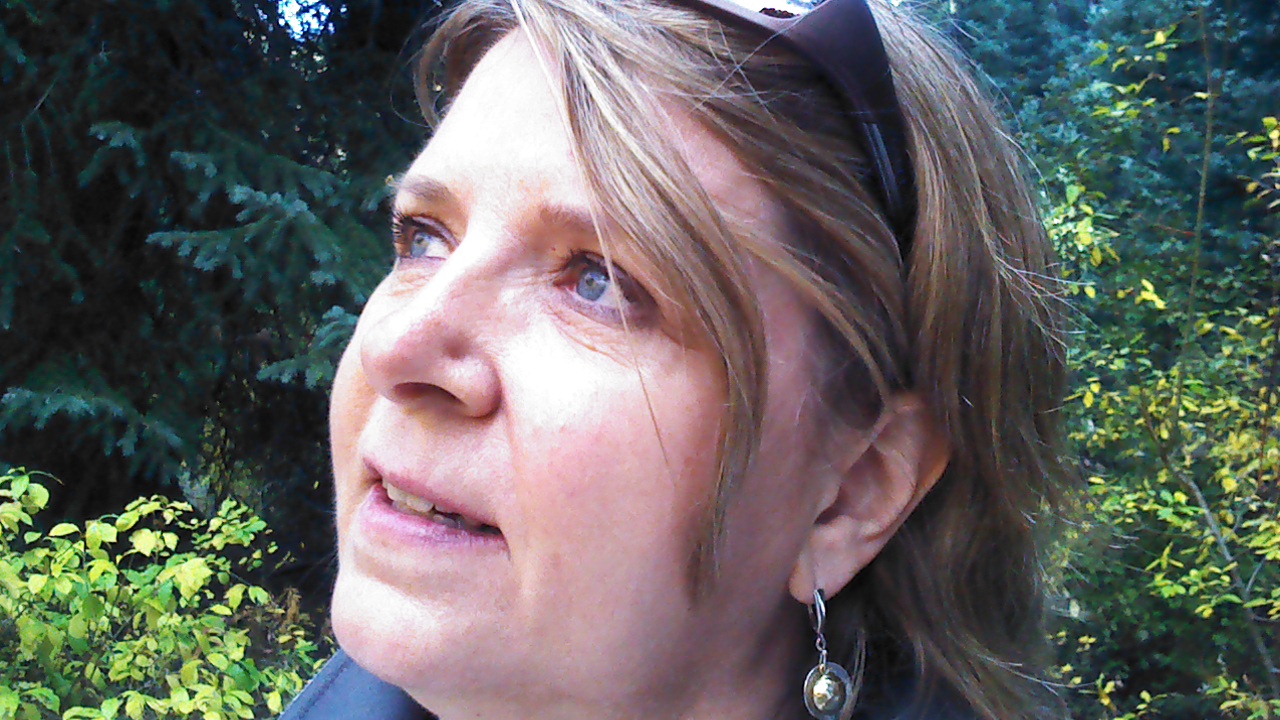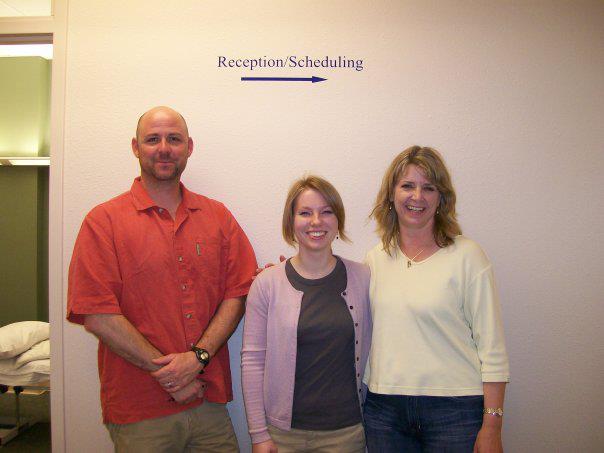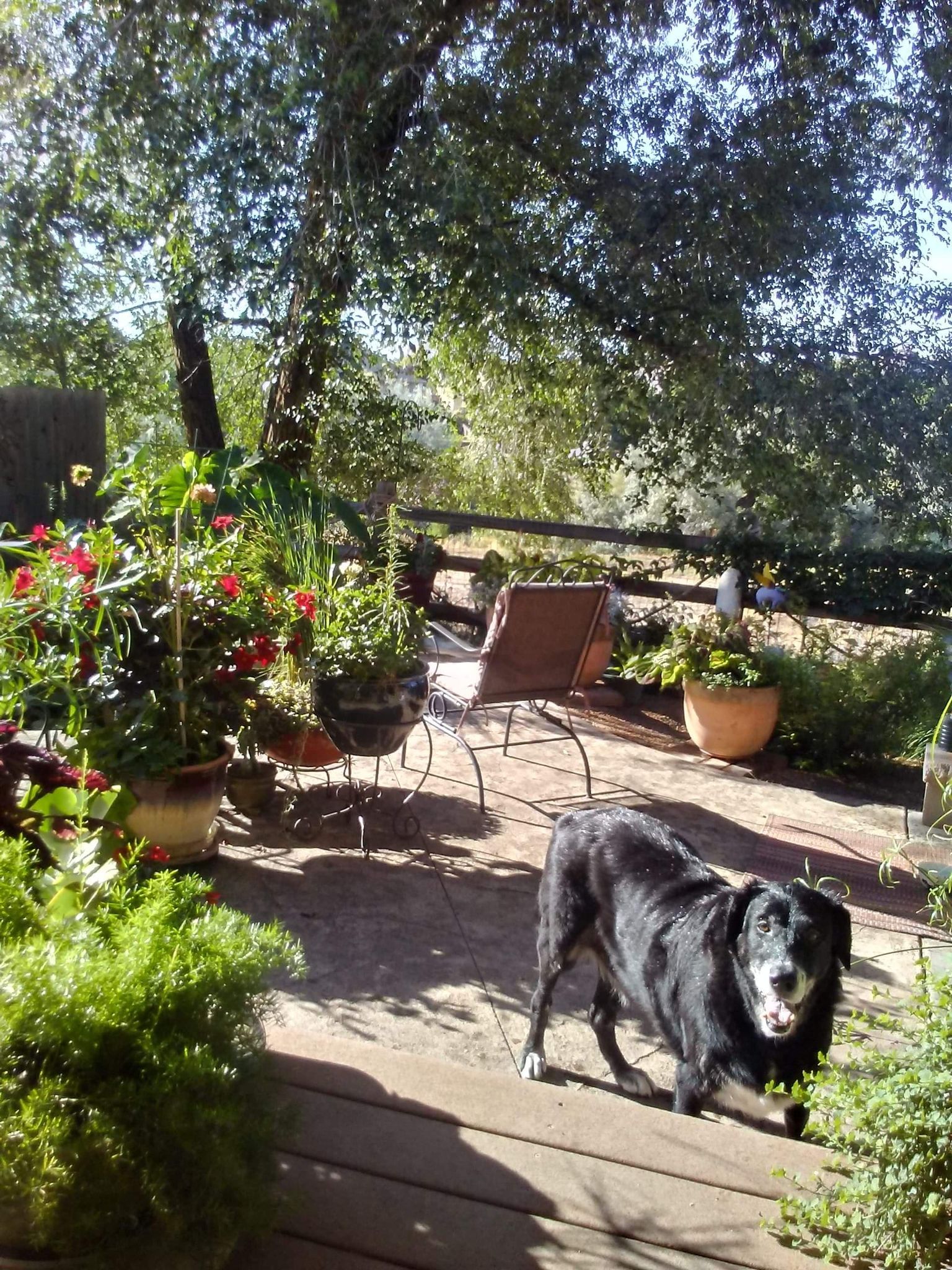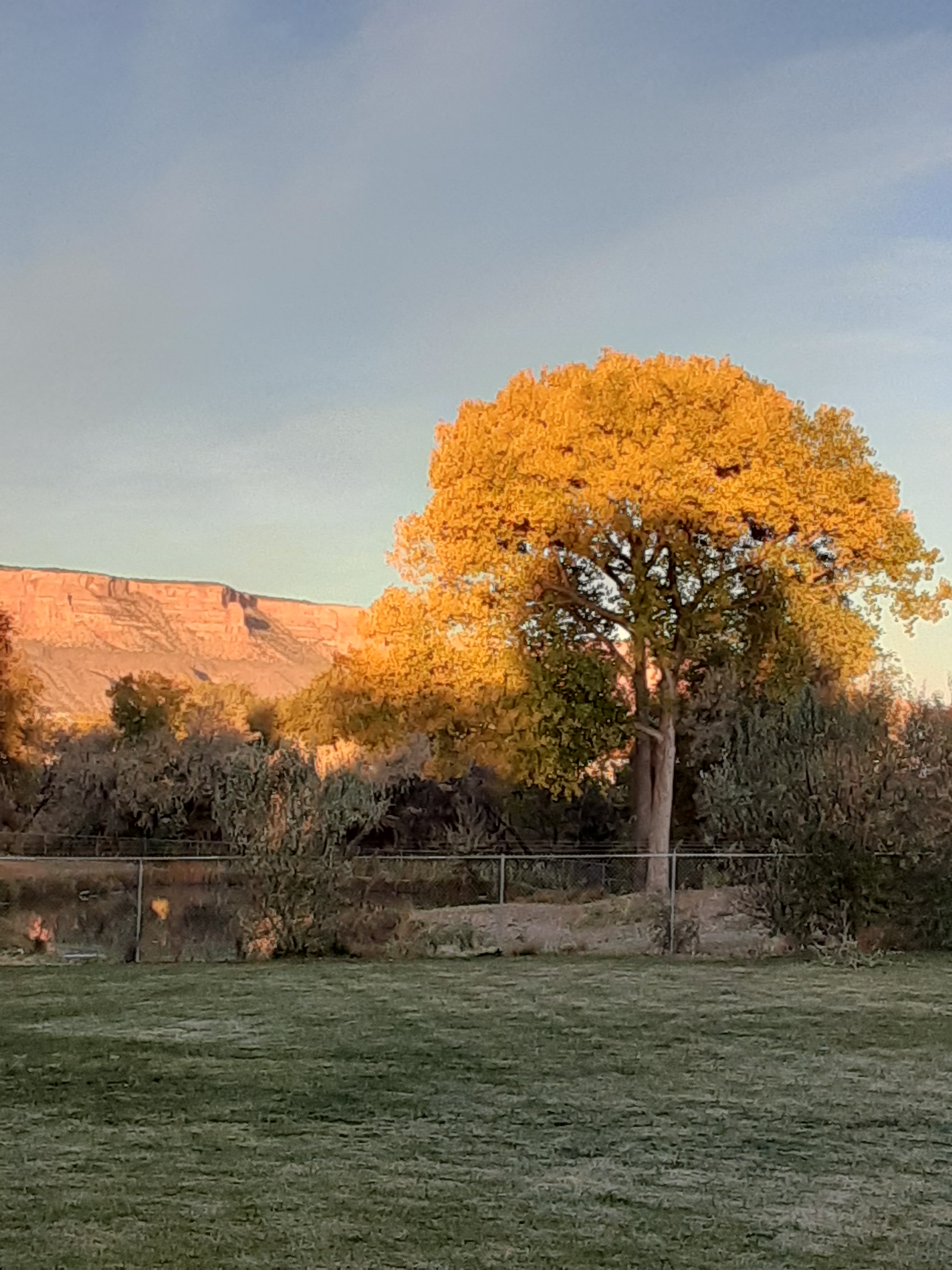There are no products in your shopping cart.
The First Day of Fall
It is the first day of the autum season, 2021, as I write this. It is my favorite season, since moving to the Grand Valley of western Colorado in 2004. I'd lived the first four decades (plus a few years) on the Front Range, as it is referred to -- the eastern slope of the Rocky Mountains. There, the winters can be brutal; here the summers are.
(Photo, above, taken in Aspen, Colorado, where I went to celebrate the start of fall in 2012)
The big city, with the state's capital, is Denver, and it's fairly mid-state, though a bit to the east of center due to the Rocky Mountains being in the middle. Two major Interstate Highways intersect in Denver, I-25 going north and south, and I-70 going east and west.
The railroads, too. Union Station is where my father was changing trains, being part of the US Army Air Corps during World War II. He shared with me one day in the late 1990s, as we were walking across the tracks near Union Station to attend a performance by Cirque de Soliel, that changing trains there one day during WWII, he looked west to the Rockies and thought to himself "after the war, maybe this is where I'll come".
It took him a decade after the war was over to get there, as his positions within the military organizations took him to Los Angeles until 1949 at least, then Texas (briefly), then Albuquerque, where he met my mother and married hurriedly due to England's Royal Air Force Bases being his next step in a career he wished he did not give up. Taking a "deal" given to officers that allowed them to finish their years in the Reserves, with Buckley Air Force Base being in Denver, he, with his new life of wife and first born (not me, started over in the hills and valleys southwest of Denver.
If you get on I-70, or on the Amtrak passenger train and it's tracks, to the west about 250 miles, just before you get to the state line with Utah, you'll find the Grand Valley, with Grand Junction being the main city between Denver and Salt Lake City, Utah. It was the junction of two rivers that inspired the name as settlers came in the 1800's; the Gunnison and the Grand, which was later renamed the Colorado River.
"The Mighty Colorado", it is called affectionately. Many used to call the city "Junktown", because when you passed through on the US Highways or the train, you'd see a massive area by the river that was used for dumping unwanted items. As the mainstream medical industry put down roots and began establishing and growing it's businesses and related organizations, it also was given the nickname "dysfunction junction".
The Front Range, in my lifetime, had "boomed" with the usual "baby boom" everywhere, but additionally newcomers drawn by the Universities, businesses, and organizations appealing to people who wanted to live near the Rocky Mountains. The old families who settled as homesteaders or their next of kin, who could now be identified if they bought vanity license plates for their cars specifying "Pioneer" status, were few compared to the masses. In my work as a rehabilitation occupational therapist for the years 1996-2003 there, the norm was people didn't have family locally for support, and instead had family-like relationships with neighbors and friends.
My first weeks working in a similar skilled nursing home in Grand Junction, or later in home health care and the premier outpatient physical therapy clinic, the number of patients who had local family support was dramatically higher than in my Front Range experience. I stepped aside from that type of work in 2008, creating Lumigrate and going in a different direction, but I am seeing the changes occurring in Grand Junction that occurred 25 to 50 years ago on the Front Range: more professionals moving here for the jobs, or recreation, or relatively affordable real estate compared to other places, and they will build supportive relationships with others here, since family is not near.
The area has been gradually cleaned up over the decades, and areas that were previously junk-riddled are now with lovely parks, including an amphiteater. It's clearly a city "on it's way up", similar to how Fort Collins was when I was there, half my lifetime ago.
It's a perfect place for those who want to be involved with people who have health problems of various kinds to be. Over the years uranium, oil shale, and natural gas have fueled, pun intended, the growth. The natural resources industry was inconsistent, leading the town into cycles of boom and bust; the need for uranium stopped, but fortunately a doctor had become interested in why some workers were affected negatively, and others not, and a medical research institute would be his legacy.
Booms and busts followed with oil shale, and I had the pleasure of learning how some, from long-standing families in the region, figured out how to profit from the fallout of "Black Sunday" as it was called. Intelligence, persistence, and a bit of luck with consequences seemed to be a common trait, similar to my cohorts in public school in the mountains outside of Denver. And with it, similarities I'd be intrigued with, in health issues.
I arrived in the boom of natural gas production (2004), and was affected by the bust of 2008, just as I was mid-way creating Lumigrate.
With the 2020 Covid crisis, many people in the United States and beyond moved from where they were, and Colorado boomed again. Everywhere. Including Grand Junction. If you were paying attention and spending time thinking about what you observed here for a long time, there had been an enormous amount of building of new medical buildings, collaborations between entities, mergers, and so on. It was as if those in the know knew what the population would be here, now.
My father's ending military tasks, at Buckley Air Force Base in Denver, involved planning on the Front Range, for such things as evacuation. He told me in the 1970s, when I was a teenager, what the plan was for the Front Range: "in your lifetime, or maybe by the time you're 40 (in 2000), from Fort Collins to Pueblo, it's going to be similar to how it is from LA to San Diego." This was followed by a suggestion to adopt an attitude of embracing the change, or move somewhere less dense in population.
When I arrived in Grand Junction in December of 2003, for what was an agreed-upon three week "gig" for me to be the lead OTR in a standard 100 bed skilled nursing facility with subacute rehab while they contracted and brought in a "traveler" from an agency, I got off I-70 and found my motel near the airport. A slimy coating of spray kicked up by the tires of vehicles also crossing the snowy Rockies on I-70 was everywhere except where wipers cleared the windshield, so I went seeking a car wash -- the kind with a wand so you don't run the risk of damaging your car. And to find the nursing home I'd need to be at first thing in the morning.
As I headed down the street into Junction proper, I saw a large building under construction on my left, which appeared in the dark, to me, to be a firehouse with perhaps another type of business with it. I'd learn once I was underway at the nursing home, that the building was going to be a medical building with the usual medical offices people need all under one roof. The property was adjacent to where the future hospice would be built, and the old homestead's house was the pink house near the road, which would be a coffee shop and meeting place. To be in construction in 2003, how far back were the plans started?
A year later, I'd be crossing the threshold of the newly completed building and seeing all it offered: primary care for adults and pediatrics, urgent care, radiology for basic injuries, pharmacy, physical therapy, behavioral therapy, optometry, infusion pharmacy, and less obvious was worker's compensation. I'd be meeting with the owner of the physical therapy clinic, because they wanted to include occupational therapy to meet the needs of the building's clientele.
I'd also been connected to meet with the owner of the behavioral health clinic, whose schedule allowed for a later meeting. This was unfortunate, because both wanted me within their clinic, and the general manager of the building ruled that who I talked to first was who I'd join. Had it been left to me to decide where I went, my whole life would probably be different from that point on.
I'd simply be more congruent with the man with a doctorate in psychology, who specialized in brain injury, pain, and looking for the mind-body connection -- who sincerely wanted to find solutions, and in fact tasked me with that on the day Lumigrate went live on the Internet in the spring of 2009. He'd just co-presented in the lovely conference rooms, to the area's top organization leaders where mental health was an interest. He co-presented with his wife, who is co-owner in the behavioral health practice and leading expert in western Colorado on anything to do with children, abuse, autism, etc. The topic: Adverse Childhood Experiences, which I would include in the Forums here at Lumigrate as a result of their influence.
I was included, still, in such mainstream events. I'd only left practicing in the building in February 2008. The Grand Finale was the COTA and I (an OTR) had provided internship for an OTAStudent, who, this spring, graduated with her Master's in OT and will be an OTR. The circle of life.  She's the one in the middle, end of February 2008 when this photo was taken as she had passed her OTA internship with us then. Job, marriage, children and lots of work to get from OTA to OTR in 13 years, it took! I congratulate Lisa AND ALL who do the hard work to get the education and credentials within mainstream and provide the services needed.
She's the one in the middle, end of February 2008 when this photo was taken as she had passed her OTA internship with us then. Job, marriage, children and lots of work to get from OTA to OTR in 13 years, it took! I congratulate Lisa AND ALL who do the hard work to get the education and credentials within mainstream and provide the services needed.
Up to the north about an hour's drive on I-25 from Denver, and a bit west, is Fort Collins, where the agricultural college was in the old days. It grew into what is now known as Colorado State University. I'd not have a clear path for a career, but fortunately in stumbling around in business and secretarial courses I was brought to the attention of a departmental secretary who was looking to hire a statistical typist and backup office helper. That lead to my working full time once I'd dropped out of courses, but I'd fortunately met a woman graduating in this nobody told me was offered there -- occupational therapy! I knew the first hour of the first day of my first class, Introduction to Occupational Therapy, "this --- this is what I was born to do!" It was 20 agonizing years after the first adult asked me, at four, what I wanted to "do" or "be" "when you grow up?"
Since my parents owned an AKC kennel and I attended dog shows with my mother, I knew of "seeing eye dogs". My parents bred only golden retrievers, so I thought it was a shoe in to say that was my desired career path. But instead, the response was that I needed to do something not everyone wants to do, that requires schooling that's not easy and blah blah blah.
Next, I said I'd like to be a veterinarian, but my father said I couldn't do the organic chemistry (because I'd never had learning disability help, which he left to my mother to address, and she didn't.) So I said veterinary technician, and the response to that was it wasn't enough schooling, you'd not make much money, only have two weeks off a year and I needed to study something that set you up for a good income and benefits, because it was challenging and you needed to persist through it when others wouldn't.
My father was "on the spectrum", though not diagnosed -- he would be 100 as I write this, his birthday the 17th of September. He had his needs met with their first-born, and I was something my mother had wanted, and he went along with. In his mind, we were equal, but in his heart, not. That's just the way he was. And in the end, that's the way he left things.
My graduation day, finally, after eighteen years at Colorado State, and in the program that had the highest GPA of admitted candidates, mind you, was a bit disheartening on one hand, and on the other "normal" for me. My mother, the tree this apple fell not far from and my ally in the family, had died nine years before. There was something that weekend that my father would be interested in and the firstborn who was always looking for things to get him out to saw advertised. Calling to ask if I wanted to go, I said "That's graduation weekend."
I (wrongly) presumed that since they knew I was completing coursework and going on to internships in Denver at the VA, they'd realize it was MY graduation, but I had omitted the key word. They wanted to go to this Denver area event and I didn't question it because I was so used to not having supportive family.
When I won first place with dog training, nobody from my family was there and I got a ride home from my classmate Cheryl's mother, who kindly said in the car "That's too bad nobody from your family was there to see you with that." Awkward because she was there to see Cheryl, who didn't win -- I teared up in the back seat and don't recall our friendship going forward after that.
Or in high school for a concert choir performance we were to sing in the aisles of the auditorium, a song about how we don't say often enough, to those who mean the most to us, that we appreciate them. We were to not tell our supportive family members sit in seats we'd designate for them near where we were standing, and sing to them. My friend Susan told her mother I had nobody and they decided her mother would sit near me, not Susan -- but of course they'd know Susan was singing to her from across the big room, too. Susan and I had become friends in first grade, she was assigned to sit on my left, I on her right.
I'd worked hard for years, taking classes one at a time, doing well, after getting some vision therapy and optometry help from a doctor dabbling in the field due to his own symptoms.
I'd borrow via student loans, and be thankful I could pay the debt, and everything, in 2006 with a small inheritance I received. I used the rest for living while I fostered the program in that big building, helping a student come to fruition, and giving a dynamite COTA a job helping many with his unique skills in upper extremity rehab.
I'd work hard in the OT program, and not be able to work in those years due to the coursework and progressively difficult and longer internships. I'd apply to be selected for the Denver VA internship, which was given to only certain types of students who could be autonomous, due to the supervisor's style. Due to psychiatric occupational therapy being key in it's history, and that being phased out increasingly as mainstream changed over the generations and decades, I wanted to see that before it disappeared. I'd always valued and integrated more than others, the history of how occupational therapy came to be in the military of World War One.
That experience with the VA, mostly in the psychiatric unit but also the main part of the hospital and nursing facility, set me up greatly with some wonderful and unique information and experiences. I've spend a lot of time within the VA system the last two years, this time as a patient advocate and overall assistant and extension to family for a man whose funeral is being planned right now. I'm pleased to say that both times I saw him after he was no longer able to live at home, he thanked me for all I prepared him for as to the likely road ahead, and how I was right about everything he had not wanted to hear at the time.
It was, simply, time for another blog entry, my last one was in January, and had over 10,000 by the last day of summer. And this is what came. In part because I recognize that on this day a year ago, O'Rio Grande was here, lying on his bed comfortably, waiting for the veterinary team to come, so he could pass from this life and body that had given out, as I mourne this year, the passing of my special veteran client I solely served through Covid-19's intense distancing times.
O'Rio had, through my being able to provide him with special rehabilitation veterinary care, especially acupuncture, inspired the almost-90 year old man to do the same. A year ago I was taking him to his first VA-supported acupuncture out in the community, which did some good, and when you are literally ON THE CUSP, every. little. bit. that. helps. makes. a. difference!

Now Tres, the old yellow lab I've had since December 7, 2020, is benefitting from the same vet, the same acupuncture, plus medications -- some the same as the veteran man took! And they didn't get to be as close buddies, they did spend time together, and Tres helped brighten his life a bit.

And so, soon the view from my living room will be like this photo from last year -- some leaves are beginning to fall. Thanks for spending the time reading this blog post, I hope it has held your interest and perhaps inspired some thought. ~ Gratefully ~~ Mardy
Live and Learn. Learn and Live Better! is my motto. I'm Mardy Ross, and I founded Lumigrate in 2008 after a career as an occupational therapist with a background in health education and environmental research program administration. Today I function as the desk clerk for short questions people have, as well as 'concierge' services offered for those who want a thorough exploration of their health history and direction to resources likely to progress their health according to their goals. Contact Us comes to me, so please do if you have questions or comments. Lumigrate is "Lighting the Path to Health and Well-Being" for increasing numbers of people. Follow us on social networking sites such as: Twitter: http://twitter.com/lumigrate and Facebook. (There is my personal page and several Lumigrate pages. For those interested in "groovy" local education and networking for those uniquely talented LumiGRATE experts located in my own back yard, "LumiGRATE Groove of the Grand Valley" is a Facebook page to join. (Many who have joined are beyond our area but like to see the Groovy information! We not only have FUN, we are learning about other providers we can be referring patients to and 'wearing a groove' to each other's doors -- or websites/home offices!) By covering some of the things we do, including case examples, it reinforces the concepts at Lumigrate.com as well as making YOU feel that you're part of a community. Which you ARE at Lumigrate!
- 3132 reads
- Mardy Ross's blog
- Login or register to post comments
 print
print e-mail
e-mail


![Expand cart block. []](/sites/all/modules/ubercart/uc_cart/images/bullet-arrow-up.gif)

